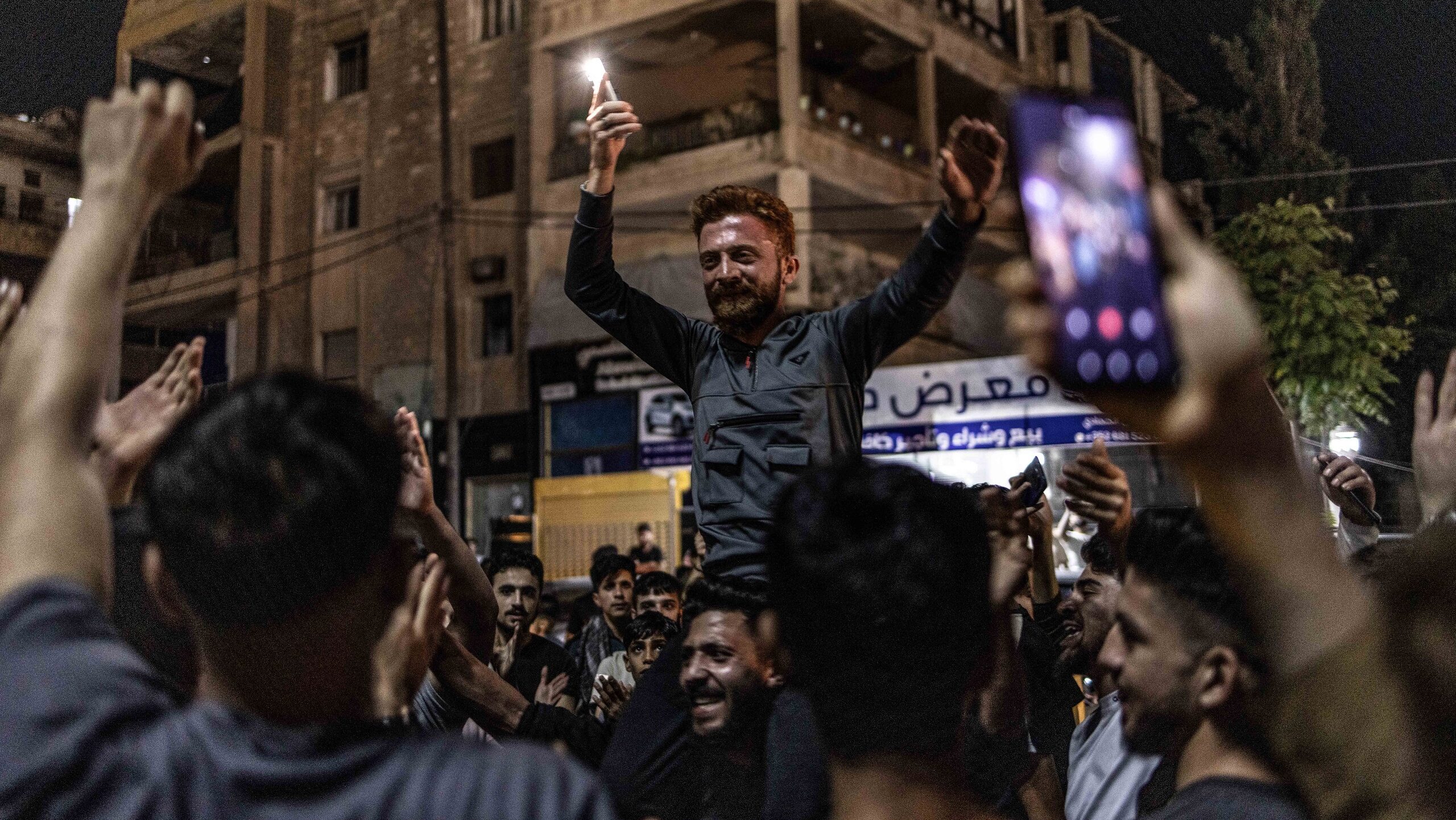Shiites Mourn ‘Martyred’ Nasrallah While Sunnis Quietly Back Israel
Views on assassinated Hezbollah chief Hassan Nasrallah break down along sectarian lines, with Sunni Muslims careful to note that their support for Israel’s assassination of Nasrallah does not entail support for the Israeli military
The assassination of Hezbollah Secretary-General Hassan Nasrallah by an Israeli airstrike on Friday triggered varied reactions across the Arab world. Most Arab countries did not comment on Nasrallah’s death.
Apart from Oman, none of the Gulf states issued statements regarding the assassination. Oman’s grand mufti, the head of religious affairs, expressed his condolences.
In contrast, Iraq and Syria declared three days of mourning for Nasrallah, while the Palestinian Authority and Yemen’s Houthi movement condemned the killing. Morocco’s Justice and Development Party also mourned Nasrallah.
Gulf states accuse Hezbollah of forming and training sleeper terrorist cells with the support of Iran’s Islamic Revolutionary Guard Corps (IRGC). The group is also blamed for terrorist attacks, including bombings in Bahrain and Kuwait.
Reactions to Nasrallah’s assassination were mixed among the citizens of Arab nations.
Many Sunni Muslims celebrated Nasrallah’s death due to Hezbollah’s involvement in killing Syrians, Iraqis, and Lebanese. In contrast, most Shiites condemned the killing, calling Nasrallah a martyr for the resistance. Many Shiites also criticized the lack of response from Arab governments.
Although the Muslim Brotherhood is a Sunni organization, it also condemned the assassination, declaring Nasrallah a martyr. The group has close ties with Turkey, which similarly denounced the killing.
Shiite demonstrations condemning the assassination took place in several Arab countries, particularly in Iraq and Yemen. Meanwhile, in Syrian regions, people celebrated Nasrallah’s death, accusing him of supporting Bashar Assad’s regime and its violence.
This holiday season, give to:
Truth and understanding
The Media Line's intrepid correspondents are in Israel, Gaza, Lebanon, Syria and Pakistan providing first-person reporting.
They all said they cover it.
We see it.
We report with just one agenda: the truth.


Arab countries will benefit from the killing of Hassan Nasrallah
“Arab countries will benefit from the killing of Hassan Nasrallah,” Saudi journalist and political writer Abdullah Al-Bandar told The Media Line. He suggested that Iran may have allowed Nasrallah to be killed, or possibly even leaked his location.
“This is the beginning of the end of terrorist groups in the Middle East,” Al-Bandar said. “We do not want further escalation, so the region does not get dragged into a major war, but it’s clear that this war will bring an end to Shiite militias.”
He said that Gulf countries benefited from the assassination of Nasrallah much as they did by the US’s assassination of IRGC commander Qasem Soleimani. “But we are not for more war and the killing of innocents,” he clarified.
This is the beginning of the end of terrorist groups in the Middle East
Omani political writer Hamood Al-Nofli criticized those celebrating Nasrallah’s death, accusing them of aligning with Israel. “No Muslim should rejoice at the death of another Muslim,” he told The Media Line.
Al-Nofli argued that Israel’s attacks, including Nasrallah’s killing, had intensified anti-Israel sentiment and opened new fronts. “More leaders will emerge from Hezbollah,” he said. “We may disagree with some of the party’s policies and positions, but it remains a militant party that contributed to the expulsion of Israeli forces from Lebanon and supported the Palestinian resistance.”
Kuwaiti political researcher Abdullah Shuail told The Media Line that Nasrallah’s death would “change the rules of the game in the Middle East.” He said Hezbollah trained terrorists who carried out attacks in the Gulf and accused the group of pursuing “political ambitions in the Middle East” as an Iranian agent.
“We certainly do not stand with Israel, but let’s not forget that Hezbollah was behind the formation of terrorist cells in the Gulf states, killed hundreds of thousands of Syrians and Iraqis, controlled the fate of Lebanon, and set Lebanon back 100 years,” Shuail said.
No Muslim should rejoice at the death of another Muslim
Faleh al-Saqr, a Sunni Iraqi politician, noted that Iraqi reactions to Nasrallah’s death were split along sectarian lines. “Iraqis are divided between those who support and those who condemn Nasrallah’s killing,” he told The Media Line. “Sunnis in Iraq hate all Iranian-backed militias, including Hezbollah. Candies were distributed in many Sunni cities after Nasrallah’s death. He was the reason for the establishment of the Iraqi Hezbollah, which killed thousands of Sunnis.”
“There will be more destruction from this war, but we are happy with Nasrallah’s death,” al-Saqr said.
Hassan al-Lafi, a retired Iraqi brigadier general and Shiite, condemned those celebrating Nasrallah’s death, calling them “abnormal.”
“The Iraqis stand with the Lebanese people in their deepest condolences for the martyrdom of Hassan Nasrallah,” al-Lafi told The Media Line.

